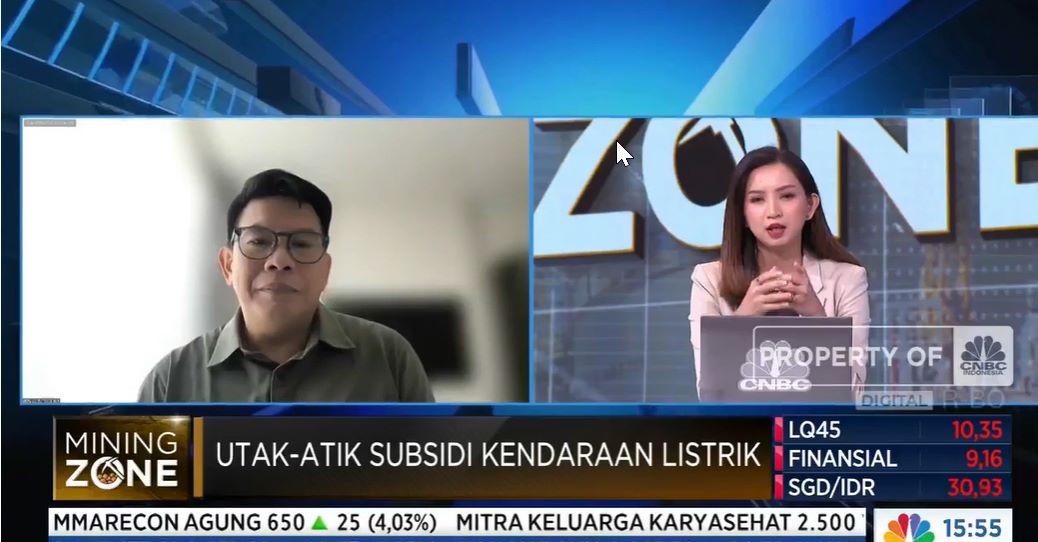Jakarta, May 11, 2023 – Executive Director of the Institute for Essential Services Reform (IESR), Fabby Tumiwa, stated the Government of Indonesia provided electric vehicle incentives as one of the strategies to open or develop the electric vehicle industry itself. However, Fabby stressed that there are better solutions than incentivizing electric vehicles to overcome the congestion problem. This was said by Fabby Tumiwa when he was a guest speaker on the Mining Zone program, CNBC Indonesia TV, on Thursday (11/5/2023).
“We already have a downstream policy; we cannot export nickel ore. For this reason, nickel must be produced in Indonesia, and we already know that nickel is processed in smelters to become batteries. With this policy, several global companies are currently investing in Indonesia, including Korea and China. Well, the next stage is building an electric vehicle. For example, the type of battery is like Nickel-metal hydride (NiMH),” explained Fabby Tumiwa.
Furthermore, Fabby said to attract investment in electric vehicles, it is necessary to create market demand (demand). It is considering that the need for electric cars in Indonesia is still small. According to Fabby, sales of electric vehicles have remained within 25 thousand units since the issuance of Presidential Regulation (Perpes) No 55 of 2019. Reflecting on this, the government needs to set a strategy to grow demand for electric vehicles.
“With the demand, it is hoped that electric vehicle manufacturers can invest in Indonesia. However, it should be remembered that if we want to encourage investment on the upstream side, the incentives will differ. On the other hand, if we build a market from the product, the incentives are also different. Hence, the existing incentives cannot be wrong because we need to look at the context,” mentioned Fabby Tumiwa.
In addition, Fabby stated that in the context of energy use, there is a need to substitute fuel oil imports (BBM). As is known, Indonesia’s oil production continues to decline every year. Under these conditions, said Fabby, if there were no efforts to reduce fuel consumption, more than 60% of fuel needs would be imported. This is a severe problem because it threatens the security of the national energy supply.
“Under such conditions, incentives for electric vehicles are also part of a strategy to reduce growing demand for fuel by shifting vehicle technology. Remembering that electricity can come from anywhere, including renewable energy, “said Fabby Tumiwa.
Not only that, in the context of the energy transition, said Fabby, the automotive industry will sooner or later experience changes. If Indonesia is prosperous in electric vehicles, the production of conventional cars will decrease, which can impact reducing employment opportunities. As market interest in conventional vehicles declines, green jobs will be created.

